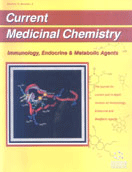Abstract
Transmissible spongiform encephalopathies (TSEs) also called prion diseases are fatal neurodegenerative disorders of humans and animals which are unique as their origin can be infectious, genetic or sporadic. More than 80% of TSE patients have sporadic cases, 15% have familial forms and 5% iatrogenic forms. In humans, TSEs are represented by Creutzfeldt Jakob disease (CJD), Gerstmann-Straussler-Scheinker syndrome, Fatal Familial Insomnia and Kuru. In animals, the prominent prion diseases are scrapie of sheep and goats, bovine spongiform encephalopathy (BSE) of cattle and chronic wasting disease (CWD) of deer and elk. A critical event in TSEs is the accumulation in the central nervous system (CNS) of an abnormally folded protein, PrPSc, the protease-resistant isoform of a normal cellular protein encoded by the host and called PrPC. Until now, PrPSc isoform represented not only the best molecular marker of prion diseases but also a favorite target for therapeutic strategies. During the last decade studies on prion diseases have taken a new dimension with the BSE crisis in Europe and the emergence of a new variant of Creutzfeldt-Jakob disease (vCJD) linked to the BSE agent. Currently, no effective therapy exists for patients suffering from a clinically manifest prion disease. In addition, the multiplicity of TSEs origins and clinical forms emphasizes the difficulties of a therapeutic intervention. Indeed, it is likely that sporadic CJD which are diagnosed lately during the course of the disease request the development of a therapeutic approach that is different from that of familial prion diseases due to mutation in the PrP gene. Diagnosis, origin and stages of the disease are critical factors that should orient studies towards the development of adapted therapeutic approaches. In this article, we will review the anti-prion drugs that were identified up to now.
Keywords: immunotherapy, prion diseases, transmissible spongiform encephalopathies, gerstmann, straussler, scheinker syndrome
 1
1








